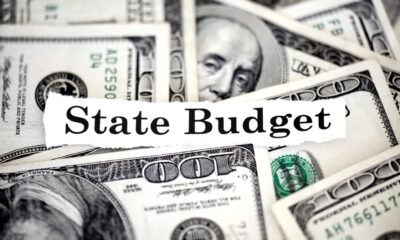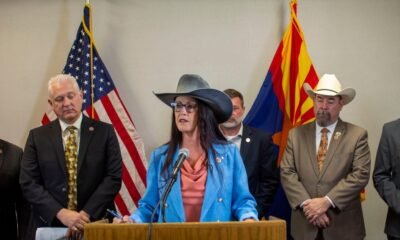Active Early Voter List
Republicans Push for Arizona’s Vote Count to Mirror Florida’s, But It’s Complicated

Republican lawmakers in Arizona are pushing for election reforms resembling those adopted in Florida, citing a need for faster results in the state’s electoral processes. They argue that current procedures have made Arizona a “laughingstock,” with proposed changes aiming to enhance voter confidence while addressing claims of disenfranchisement.
During a Federalism, Military Affairs and Elections Committee meeting, Rep. Khyl Powell emphasized the importance of prioritizing voting rights, stating, “The Constitution of the United States was written to protect our rights, not to provide equal things.”
Among the key legislative proposals, House Bill 2703 seeks to end the ability for voters to drop off mail-in ballots at any polling location after 7 p.m. on the Friday leading to election day. With nearly 200,000 late earlies contributing to tabulation delays in previous elections, proponents of the bill argue that these changes will significantly accelerate results.
Currently, voters can drop off their ballots at any polling place through Election Day. If passed, this bill would restrict drop-offs to the county recorder’s office or involve waiting in line at polling places to present identification and use a tabulator.
Supporters contend these reforms will enhance election integrity and efficiency. They assert that expanding the early voting period and maintaining other voting processes will ensure fewer voters are disenfranchised. However, critics warn that the changes could disproportionately affect rural and tribal voters, who may live far from polling places.
Experts have underscored significant differences between Arizona and Florida’s electoral structures, particularly the size and geography of their counties. Florida’s smaller counties allow for efficient management, while Arizona’s larger counties pose logistical challenges for voters.
Rep. Alexander Kolodin, chairman of the ad hoc committee, acknowledged community concerns but believed expanding early voting opportunities would compensate. Meanwhile, lobbyists have pointed out that any changes should consider the needs of Indigenous and rural voters who might find competing with logistical challenges increasingly difficult.
Despite some backing from county representatives, critics maintain that the new amendments could hurt voter access. A notable amendment requiring voters in counties with populations under 500,000 to verify their addresses every two cycles has drawn widespread concern, indicating disparities in voter treatment based on county size.
Polls indicate that a significant portion of Arizona voters favor maintaining ease of voting over accelerating result announcements. A survey revealed that 63% of respondents prioritize voter participation over quicker outcomes.
Opposition from the Arizona governor underscores the contentious nature of these proposals. Democratic Governor Katie Hobbs has warned that any reforms must not compromise voter rights, expressing willingness to discuss improvements but rejecting proposals perceived as politically motivated.
As these discussions unfold, the legislative future of such proposals remains uncertain, particularly with Republican strategies that could potentially circumvent vetoes by placing measures directly on the ballot.


















